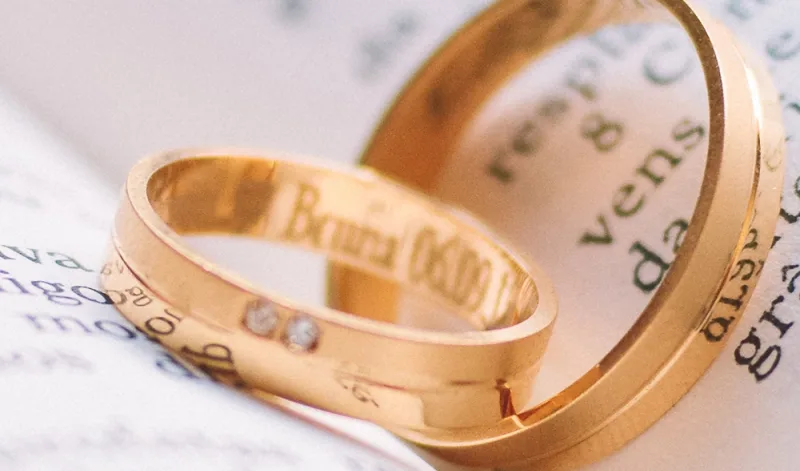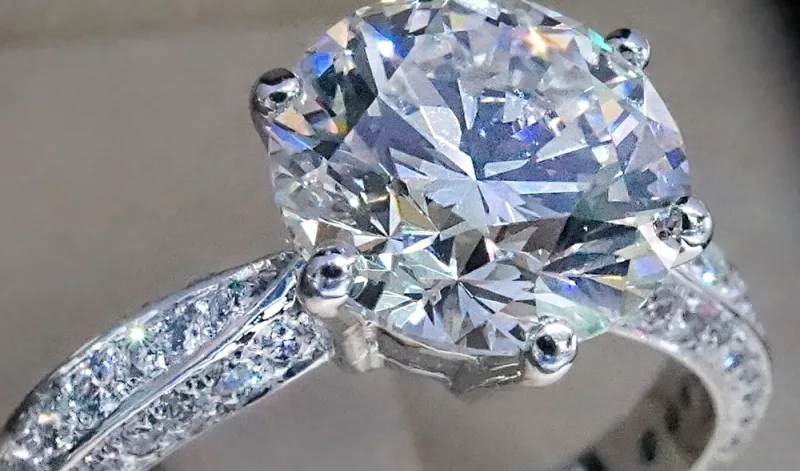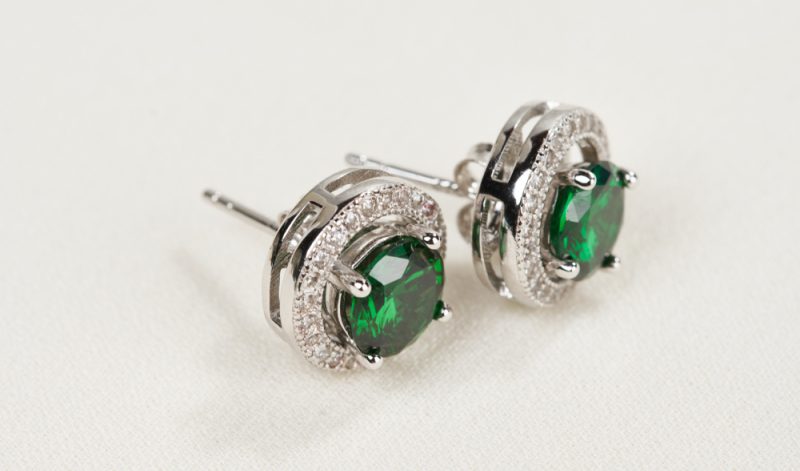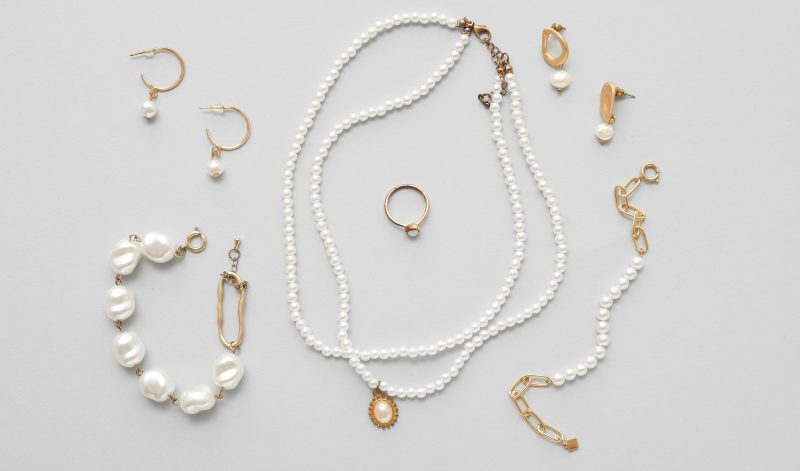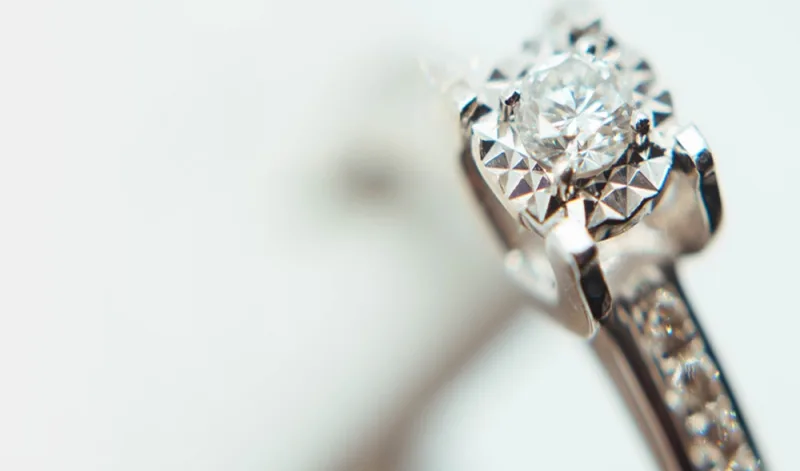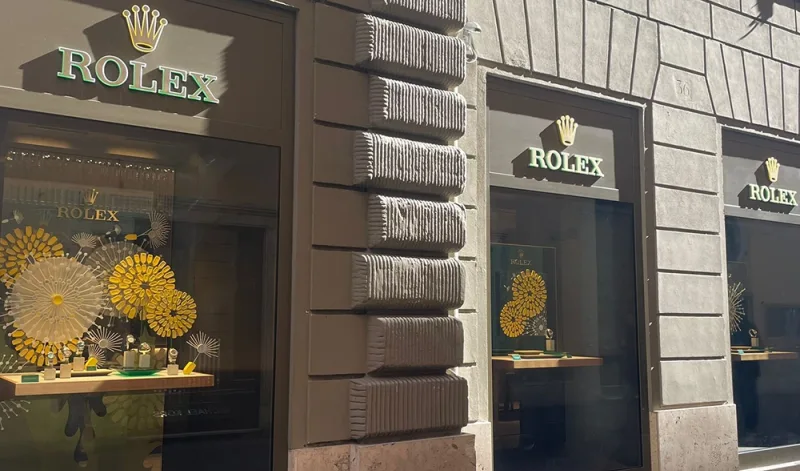Getting engaged is an exciting, joyful occasion, and celebrating that by getting a unique piece of jewellery makes it even more special. That is why some couples choose to buy an engagement ring at auction it can be a sustainable way of potentially finding a special, rare, vintage, or one-of-a-kind piece that you wouldn’t usually find in a typical jewellery shop.
Why buy an engagement ring at auction?
There are plenty of good reasons for buying a ring at auction:
- Vintage jewellery
For those interested in antique or vintage jewellery, auctions are a prime source for rings that have a rich history. These pieces often come with unique designs from past eras, such as Art Deco, Victorian, or Edwardian styles, adding a timeless appeal.
- Unrivalled craftsmanship
Many auctioned rings, especially vintage or estate pieces, feature exceptional craftsmanship that is hard to replicate today. The level of detail and the quality of materials in older rings tends to offer superior value compared to mass produced modern pieces.
- The price
Buying at auction may also save you money, as a ring can sometimes sell for significantly less than retail. This could allow you to get a high quality ring with a larger stone, or a more intricate design, at a more attractive price.
Know the style and type of ring you want
Before you go down the route of buying an engagement ring, do understand the type of jewellery you are looking for.
There are so many different types of ring shapes, styles, metals and stones, that purely choosing a ring without having really thought about it (or understanding your partner’s preferences) could lead to disappointment.
Our blog - Engagement rings basics – What you need to know - may help you decide.
Tips on buying an engagement ring at auction
Buying at auction does require a lot of patience and can be stressful. You may have to wait until a ring you really like becomes available for auction. Plus, while bidding at an auction can be fun and exciting, you should also be prepared to be disappointed if there are higher bidders than you – and to walk away from a piece.
Set a budget
Before attending an auction, it’s important to establish a clear budget. Auctions can become competitive, and it’s easy to get caught up in the bidding process. Having a firm limit helps you stay within your financial means.
It is not only the hammer price that you need to consider, but also additional costs:
- Understand any extra costs or fees beyond the hammer price, such as the Goods and Services Tax (GST), and shipping fees. These additional charges may significantly affect the final price you pay.
- You also need to factor in any possible post-purchase costs such as resizing the ring (bearing in mind that some more elaborate pieces may get damaged if resized) and engagement ring insurance.
Research the auction house
Choose a reputable auction house that specialises in jewellery or engagement rings and who is, ideally, a member of a professional body such as The Society of Fine Art Auctioneers (SOFAA).
Well-established auction houses often provide detailed descriptions, authentication, and guarantees of quality. This helps reduce the risk of buying an overpriced or inauthentic item.
Also, check customer reviews. These can give you insights into the auction house’s reputation. Positive reviews indicate that previous buyers had good experiences, while negative reviews might highlight issues like poor service, misleading descriptions, or hidden fees.
Understand the item’s provenance
Ask for information about the ring’s provenance, which includes its origin, history, and any previous owners. Rings with notable provenance, such as vintage or antique pieces from a specific designer or era, can carry additional value and appeal.
Examine the condition
Before the auction, see if you can attend a pre-sale viewing at the auction house so you can thoroughly examine the condition of the ring. Look for wear and tear, loose stones, or signs of damage.
If you can’t attend in person, many auction houses offer a condition report upon request, which provides a reasonably detailed assessment of the condition of both the stones and the setting.
Check certifications
Verify whether the diamond or gemstone comes with certification from a reputable gemmological body, such as The British Gemmological Institute (BGI) or similar. This certification confirms the authenticity and quality of the stone in terms of the 4Cs: carat weight, cut, colour, and clarity.
Understand the bidding process
Auctions can move quickly, so understanding how the bidding process works is crucial. Whether bidding in person, online, or by phone, be clear on the steps and procedures to avoid missing out or making mistakes during the auction.
Check return policies
Unlike retail stores, auction houses often have stricter or no return policies. Make sure you are fully aware of the terms regarding returns or refunds. Most auction sales are final, so bid only if you are confident in your decision.
Get an independent appraisal
After purchasing the ring, consider getting it appraised independently for jewellery insurance purposes or to verify that you paid a fair price. A jewellery valuation will provide an accurate valuation and ensure you have documentation for your ring.
If you want to protect your investment, you may wish to get a quote for engagement ring insurance so that if anything unexpected happens to the piece, it can be repaired or replaced (up to pre agreed limits).
Getting engaged is a momentous occasion and nothing celebrates it quite like a unique engagement ring.
By keeping the above points in mind, you can approach buying a ring at auction with confidence, making sure you get something unique to celebrate your engagement.










